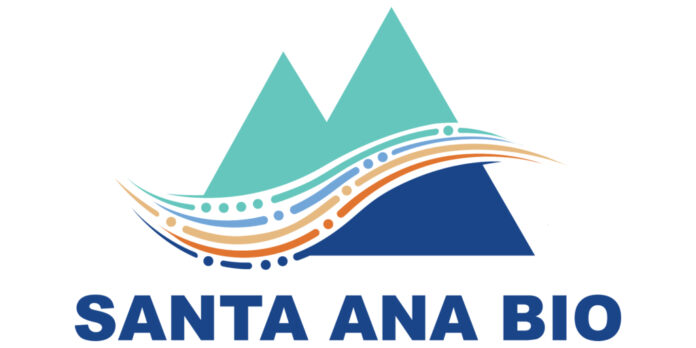ALAMEDA, Calif.– Santa Ana Bio, a precision immunology company developing targeted therapies for patients with autoimmune and inflammatory diseases, today emerged from stealth with $168 million in combined Series A and B funding. Founding investor Versant Ventures led the Series A round and was joined by TPG’s Life Science Innovations fund and GV. The $125 million Series B round was led by GV, with participation from all existing investors as well as new investors Access Biotechnology, Andreessen Horowitz (a16z) Bio + Health and RTW.
The vast majority of biologics for autoimmune disease target cytokines, which are the messengers but not the causal agents. Nor do these treatments discriminate diseased from healthy tissue. Santa Ana employs proteomic, transcriptomic and genomic approaches to precisely characterize disease-specific subpopulations and identify targets only on disease-causing cell types leaving healthy cells unaffected. This approach addresses the shortcomings of current biological treatments, including patient heterogeneity, durability of response and safety.
“Precision medicines offer the ability to target defined cell types and pathways to disrupt the pathogenic biology driving disease,” said Peter Emtage, Ph.D., CEO and board member of Santa Ana and a venture partner at Versant. “By identifying pathogenic cell types and pathways, and leveraging our deep protein engineering capabilities including monoclonal, bi-specific antibodies and ADCs, we aim to expand the reach of biologics to patients across numerous inflammatory diseases.”
Dr. Emtage has more than 20 years of drug development experience in the fields of autoimmunity, inflammation, oncology and infectious diseases. He previously served as the global head of cell therapy research at Kite Pharma, a Gilead company. Prior to that he was CSO at Cell Design Labs, which was acquired by Gilead, and VP of immune-mediated therapy at MedImmune.
“Each of Santa Ana’s programs builds upon clinical precedent, yet provides important differentiation from past approaches,” said Jerel Davis, Ph.D., managing director at Versant and board chair of Santa Ana. “Given the breadth of these programs and pipeline, Santa Ana clearly has optionality to advance these promising internal programs and to pursue partnerships.”
“We’re thrilled to lead the Santa Ana Series B and support Peter and the team as they advance a pipeline of antibodies for autoimmune diseases,” said Brendan Bulik-Sullivan, Ph.D., a Santa Ana board member and general partner at GV. “Peter is a preeminent expert in immunology and has brought together a distinguished group of scientific leaders to advance lead programs. We’re impressed with the company’s rapid execution, excellent preclinical data, and progress during its stealth phase.”
Since the company was launched in 2022, Santa Ana has advanced three programs that are poised to enter the clinic starting next year. In each case, the precision immunology therapy attacks causal cells and offers significant improvements versus competing molecules on the market and in development.
SAB01 inhibits c-Kit, a validated target on the mast cells that drive a variety of allergic diseases. Historically this target has had toxicity limitations including infections, neutropenia and low sperm counts due to its expression on a variety of other cell types. To overcome this, Santa Ana designed a bi-specific that conditionally blocks c-Kit only in the presence of an undisclosed anchor target shown to be restricted to mast cells. In vitro and in vivo, SAB01 showed conditional activity against mast cells. SAB01 has been named as a development candidate, with Phase I testing expected to start next year in chronic inducible urticaria.
SAB03 agonizes PD-1, a clinically validated target in rheumatoid arthritis. Current approaches of modulating the target do not address all antigen-reactive T cells. In contrast, Santa Ana’s molecule eliminates and suppresses high-, medium- and low-expressing PD-1 pathogenic T cells. SAB03 has been named as a development candidate, with Phase I testing expected to start next year for a variety of severe inflammatory conditions.
Santa Ana’s SAB05 ADC program employs a novel technology for antibody-glucocorticoid conjugates. This approach allows the company to safely harness the long-established therapeutic efficacy of glucocorticoids while bypassing the collateral damage associated with the use of such drugs.
Santa Ana’s team is comprised of talented executives and researchers with diverse scientific backgrounds spanning protein sciences, immunology and drug development. The company also benefits substantially from leading academic founders and advisors:
Alexander Rudensky, Ph.D., is Chairman and Member of the Immunology Program of the Sloan Kettering Institute, and Lloyd Old Chair in Clinical Investigation, an Investigator with the Howard Hughes Medical Institute, and a Tri‐Institutional Professor at MSKCC, the Rockefeller University and Cornell University.
Richard Flavell, Ph.D., Sterling Professor of Immunobiology at Yale University School of Medicine, and an Investigator of the Howard Hughes Medical Institute. He is the top cited immunologist in the U.S. and second most cited immunologist in the world.
Graham Lord, M.D., Ph.D., is currently the Vice President and Dean of the Faculty of Biology, Medicine and Health at the University of Manchester. In the fall, he will be the incoming Senior Vice President (Health and Life Sciences) at King’s College London and Executive Director of King’s Health Partners.
Ansu Satpathy, M.D., Ph.D., is a physician-scientist and Associate Professor of Pathology and Immunology at Stanford University. He is the founding director of the Stanford Center for Immunotherapy Design, co-director of the Parker Institute for Cancer Immunotherapy, and an investigator in the Stanford Cancer Institute and Gladstone Institute of Genomic Immunology.
In addition to Drs. Emtage, Davis and Bulik-Sullivan, Santa Ana’s board includes: Shinichiro Fuse, Ph.D., managing director at TPG; Marcelo Bigal, M.D., Ph.D., CEO of Ventus Therapeutics; Mittie Doyle, M.D., CMO at Aro Biotherapeutics; and Christine Borowski, Ph.D., principal at Access Biotechnology.


